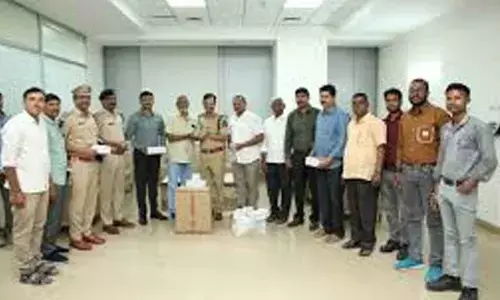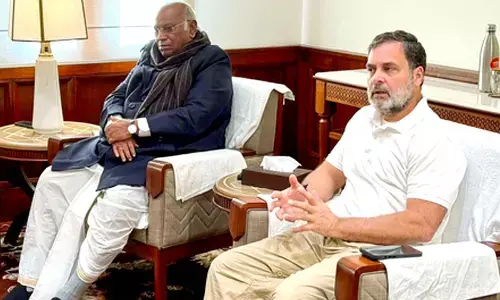Tips to prepare for the KCET exam
 Authored by Dr. Sridhar G, Founder, Deeksha
Authored by Dr. Sridhar G, Founder, DeekshaKCET: Students across the country have been gearing up for competitive exams and now have extra time on their hands to prepare due to the lock-down.
Authored by Dr. Sridhar G, Founder, Deeksha
Students across the country have been gearing up for competitive exams and now have extra time on their hands to prepare due to the lock-down. Although there is uncertainty about the new dates, it is important that students focus on the benefits of the situation. This extra time can be utilised to prepare better for different exams, revise subjects and to work on pain points. Students who are preparing for multiple exams need to only focus on learning their subjects well as there will be a similarity in the subject matter across all tests. To prepare for KCET, students need to be clear with all the NCERT-Syllabus concepts with respect to Physics, Chemistry, Maths and Biology. Keep in mind that the approach to clearing the exam must be to correctly answer all the attempted questions and not only to attempt all questions. The following are some tips:
Clear your concepts and revise well
During the academic year, you may have found a couple of chapters difficult and not studied them thoroughly. Now is a good time to revisit those chapters and master them. Identify your weaknesses, plan your day well to revise old chapters and allot extra time to strengthen hold over concepts that you are not confident about. Divide the amount of time spent per day on each subject and target more than two subjects in a day. Set realistic goals for yourself and revisit topics that you are unable to recall properly.
Practice with mock tests
Ideally, a student must go into mock test mode around the 10th of May and during this time you can test your knowledge with various mock papers covering the different exams. A combination of speed and accuracy is crucial to successfully clear the paper, and this is the best time to practice. Take as many mock tests as required so that when you sit for the exam, you are mentally prepared to finish the paper in 70 minutes. Identify all the easy questions from the question paper and solve them first. Next, solve moderately difficult questions. If time permits, only then solve difficult questions. Refer to previous question papers and prepare well for commonly asked questions so that you can save time on those and can spend more time on difficult questions. Effective time management is crucial to passing with flying colours.
Interact with experts for online doubt clearing
Ed-tech resources can come handy for quickly referring topics and clearing doubts in real-time. Prioritize important subjects and focus more on those. Access videos to help understand concepts and connect with your teachers/friends/guide to clear any doubts. There are various ed-tech resources available during this time with reading materials, mock test papers, live classes and live doubt clearing sessions which will help boost your retention power. Do not get overwhelmed by the numerous online learning resources available and seek advice from your classmates or teachers to decide on the best one for you.
Important Topics for preparation:
The KCET examination syllabus covers both PU-I and PU-II topics. In this examination, around 80% of the questions will come from PU-II topics and the remaining 20% from PU-I topics. Concentrate on Calculus, Algebra, Trigonometry in Mathematics, Chemical Kinetics, Electrochemistry, Organic Chemistry in Chemistry, Electrostatics, Current Electricity, Magnetism, EMI & AC circuits, Ray Optics and Wave Optics in Physics.
Take a breather
Find the best study pattern and settle into that. Ensure you take adequate breaks in between your study sessions and focus on your health as well. A good night's sleep is important to help your memory boost and aids the mind in absorbing information learnt during the day. Cope with stress by eating well and exercising in between your studies. Switching up subjects is also a good way to relieve stress that comes from focussing on one subject or concept for long. Prepare a timetable combined with enough stress relieving activities that helps you to be the most productive.
Stay connected
Become a part of educational social media groups and use platforms such as Telegram, WhatsApp, GTalk, etc to keep yourself updated about the announcements and developments. These platforms are also very helpful for note-sharing and discussing relevant study material. End of the day - make a clear plan, stay focussed on the plan, make the best of the time available to you and success will be yours. Take care and stay safe. All the very best!











